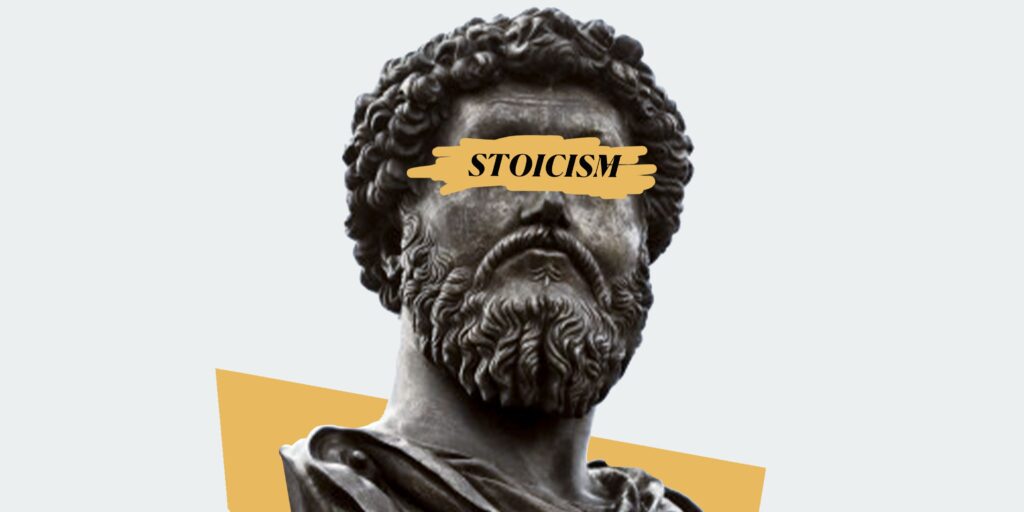Stoicism is a philosophy that has been around for centuries and has been embraced by many famous thinkers and leaders throughout history. It is a way of life that encourages individuals to focus on personal development, self-control, and rationality, all while accepting the things that cannot be changed. But can anyone practice stoicism? In this article, we will explore the concept of stoicism, its principles, and whether anyone can practice it.
What is Stoicism?

Stoicism is a philosophy that was founded in Athens by Zeno of Citium in the early 3rd century BC. It is a school of thought that focuses on ethics and logic and is based on the idea that individuals should live their lives according to reason and virtue. Stoicism teaches that individuals should live in harmony with nature and accept the things they cannot control while focusing on improving the things they can control.
The Principles of Stoicism
Stoicism is based on a set of principles that guide individuals on how to live a virtuous life. These principles include:
Logic
Logic is one of the fundamental principles of stoicism. It encourages individuals to use reason to make decisions and solve problems, rather than relying on emotions or impulses.
Virtue
Virtue is another important principle of stoicism. It emphasizes the importance of living a life of moral excellence and following ethical principles.
Self-control
Self-control is a key aspect of stoicism. It encourages individuals to exercise self-control over their thoughts, emotions, and actions.
Acceptance
Acceptance is a central principle of stoicism. It teaches individuals to accept the things they cannot control and to focus on improving the things they can control.
Can Anyone Practice Stoicism?
The short answer is yes, anyone can practice stoicism. Stoicism is not restricted to a specific group of people or social class. It is a philosophy that can be practiced by anyone, regardless of their background or beliefs.
Stoicism is not a religion, and it does not require any specific beliefs or rituals. It is a philosophy that can be integrated into any lifestyle or belief system. The principles of stoicism can be applied to daily life, work, relationships, and personal development.
How to Practice Stoicism
If you are interested in practicing stoicism, there are several things you can do:
Read Stoic Philosophy
Reading stoic philosophy is an excellent way to understand the principles of stoicism and how to apply them in your life. Some of the most well-known stoic philosophers include Seneca, Epictetus, and Marcus Aurelius.
Practice Self-Reflection
Stoicism encourages individuals to practice self-reflection and to be aware of their thoughts and emotions. This can be done through journaling or meditation.
Practice Self-Discipline
Self-discipline is a key aspect of stoicism. It requires individuals to be mindful of their actions and to make conscious decisions based on reason and virtue.
Accept the Things You Cannot Control
Accepting the things you cannot control is a fundamental principle of stoicism. It requires individuals to focus on improving the things they can control, such as their thoughts and actions, rather than worrying about things they cannot control.
The Benefits of Practicing Stoicism
Practicing stoicism can have several benefits, including:
Improved Mental Health
Stoicism encourages individuals to practice self-reflection, self-control, and acceptance. These practices can help improve mental health by reducing stress, anxiety, and negative emotions.
Improved Relationships
Stoicism emphasizes the importance of living a life of virtue and following ethical principles. This can help improve relationships by promoting honesty, integrity, and compassion.
Improved Personal Development
Stoicism can also help with personal development by promoting self-awareness, self-discipline, and self-improvement. By focusing on improving oneself and practicing virtue, individuals can achieve personal growth and fulfillment.
Increased Resilience
Stoicism teaches individuals to accept the things they cannot control and to focus on improving the things they can control. This can help increase resilience and adaptability in the face of adversity.
Stoicism and Modern Life
Stoicism has become increasingly relevant in modern life. In a world that is filled with chaos and uncertainty, stoicism can provide individuals with a framework for navigating difficult situations and finding meaning and purpose.
Stoicism can be applied to many aspects of modern life, including work, relationships, and personal development. By practicing stoicism, individuals can improve their mental health, relationships, and overall quality of life.
Conclusion

In conclusion, stoicism is a philosophy that can be practiced by anyone. It is based on a set of principles that promote self-awareness, self-discipline, and self-improvement. Stoicism can have several benefits, including improved mental health, relationships, and personal development. By embracing the principles of stoicism, individuals can find meaning and purpose in life and navigate difficult situations with resilience and grace.
FAQs
- Can stoicism be practiced alongside other belief systems?
Yes, stoicism is a philosophy that can be integrated into any lifestyle or belief system.
- Does stoicism require any specific rituals or beliefs?
No, stoicism is not a religion and does not require any specific beliefs or rituals.
- Can practicing stoicism help with anxiety and depression?
Yes, practicing stoicism can help reduce anxiety and depression by promoting self-awareness and self-control.
- Is stoicism only for intellectuals or philosophers?
No, stoicism can be practiced by anyone regardless of their background or education level.
- Is it possible to fully master stoicism?
Stoicism is a lifelong practice, and it is not possible to fully master it. However, individuals can continue to improve and develop their stoic practices throughout their lives.


